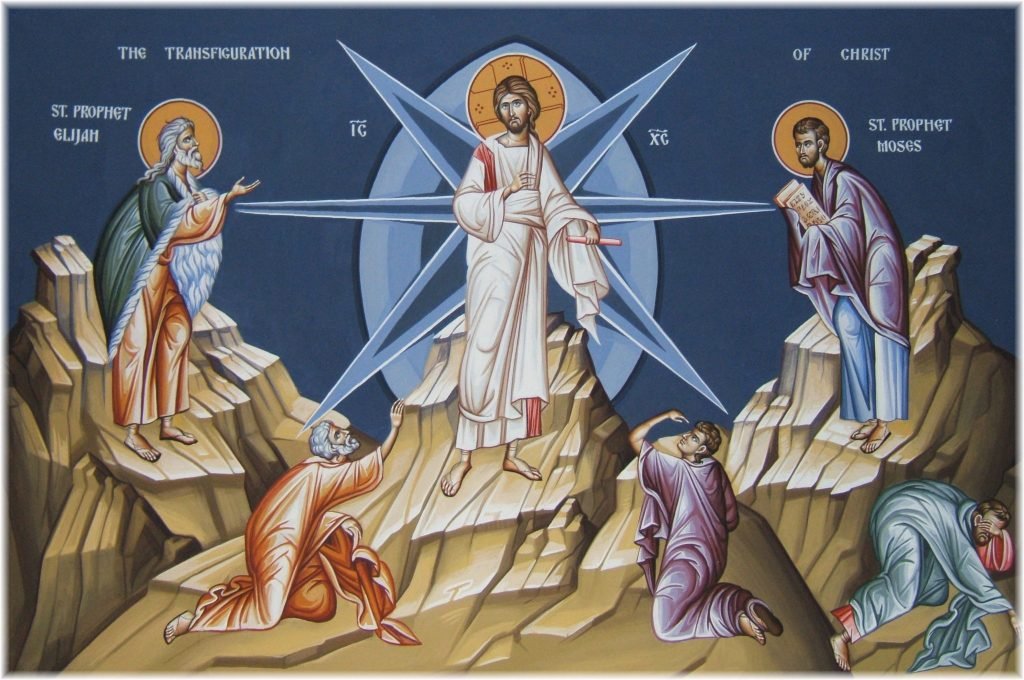 This year the feast of the Transfiguration of Our Lord falls on the ninth weekend after Pentecost. Because it is one of the major feasts of Our Lord, our proper prayers are taken totally from the feast. Our first reading is taken from St. Peter’s second letter. Peter includes this very powerful statement in his letter:
This year the feast of the Transfiguration of Our Lord falls on the ninth weekend after Pentecost. Because it is one of the major feasts of Our Lord, our proper prayers are taken totally from the feast. Our first reading is taken from St. Peter’s second letter. Peter includes this very powerful statement in his letter:
It was not by way of cleverly concocted myths that we taught you about the coming in power of our Lord Jesus Christ, for we were eyewitnesses of his sovereign majesty. He received glory and praise from God the Father when that unique declaration came to him out of the majestic splendor: ‘This is my beloved Son, on whom my favor rests’. We ourselves heard this said from heaven while we were in his company on the holy mountain.
Now we must not mistakenly think that when Peter uses the word Father in reference to God that he understood that God was Three-In-One. Rather, he realized that Jesus had referred to God as Father. When we hear this we immediately think that the Apostles understood God as we do, namely that He Is Triune.
Our second reading is Matthew’s account (17:1-8) of the Transfiguration. Matthew has condensed Mark (9:2-8) in some parts of this narrative and expanded it in others. (Account also appears in Luke 9:28-36. compare these accounts?) Matthew has added a glow to the countenance of Jesus where Mark speaks of the whiteness of his garments, but he has omitted Mark’s allusion to the fuller. Matthew has also omitted Mark’s reference to Peter’s ignorance and the fear of the disciples. He does, however, add, in 17:6-7, a deeper note of fear and reverence and presents Jesus himself as arousing the disciples. The effect of these modifications is to heighten the majesty and the mystery of the experience and to remove, as he often does, suggestions that the disciples did not really understand what was happening.
The transfiguration has no parallel in the Synoptic Gospels except the Baptism narrative, and for this reason some scholars have suggested that it is a post-resurrection narrative transferred to this point. This opinion is not widely accepted.
The external features of the narrative are derived from the Exodus narratives rather than from the resurrection narratives. The course of events in the Gospels compels us to suppose that the fullness of perception into the reality of Jesus until after His resurrection.
I’m sure that the experience of the disciples caused them to wonder about Who Jesus Was and also about human life itself. What do you think about when you hear this story repeated again?
